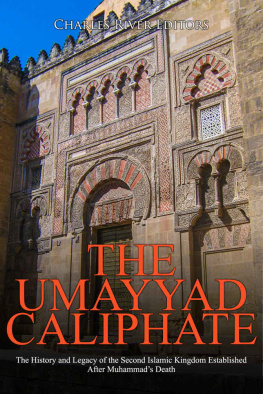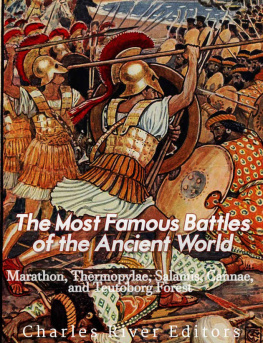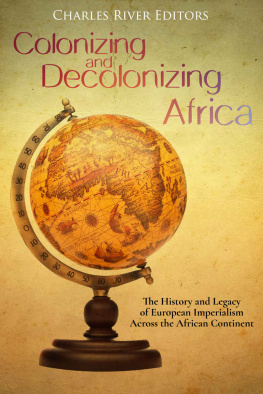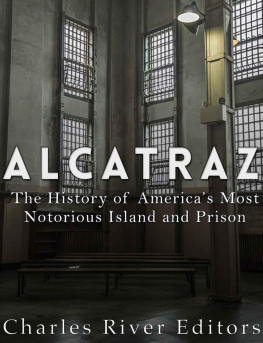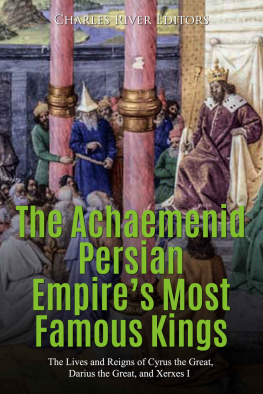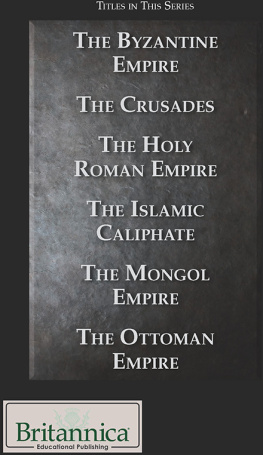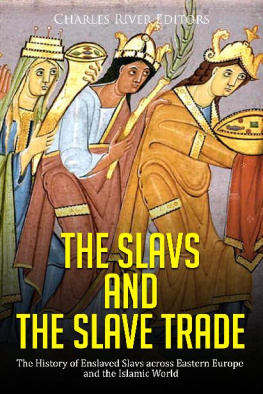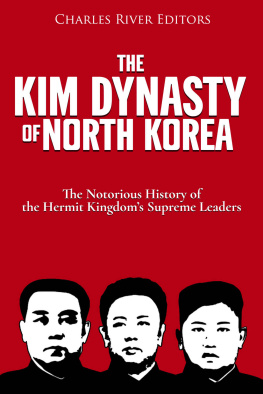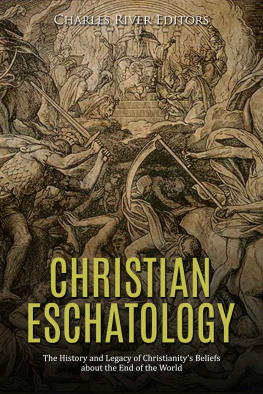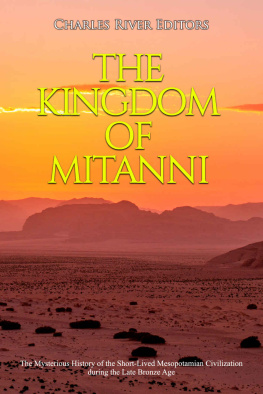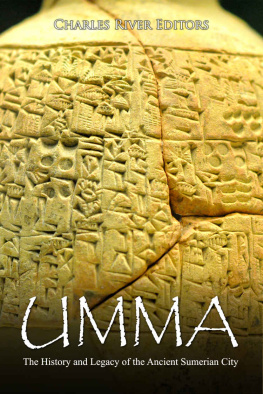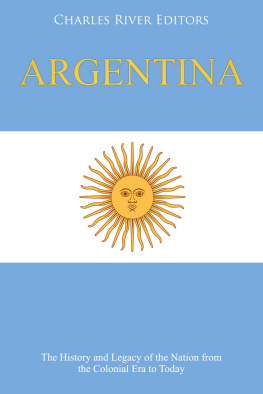Charles River Editors - The Umayyad Caliphate: The History and Legacy of the Second Islamic Kingdom Established After Muhammad’s Death
Here you can read online Charles River Editors - The Umayyad Caliphate: The History and Legacy of the Second Islamic Kingdom Established After Muhammad’s Death full text of the book (entire story) in english for free. Download pdf and epub, get meaning, cover and reviews about this ebook. year: 2020, publisher: Charles River Editors, genre: Romance novel. Description of the work, (preface) as well as reviews are available. Best literature library LitArk.com created for fans of good reading and offers a wide selection of genres:
Romance novel
Science fiction
Adventure
Detective
Science
History
Home and family
Prose
Art
Politics
Computer
Non-fiction
Religion
Business
Children
Humor
Choose a favorite category and find really read worthwhile books. Enjoy immersion in the world of imagination, feel the emotions of the characters or learn something new for yourself, make an fascinating discovery.
- Book:The Umayyad Caliphate: The History and Legacy of the Second Islamic Kingdom Established After Muhammad’s Death
- Author:
- Publisher:Charles River Editors
- Genre:
- Year:2020
- Rating:4 / 5
- Favourites:Add to favourites
- Your mark:
- 80
- 1
- 2
- 3
- 4
- 5
The Umayyad Caliphate: The History and Legacy of the Second Islamic Kingdom Established After Muhammad’s Death: summary, description and annotation
We offer to read an annotation, description, summary or preface (depends on what the author of the book "The Umayyad Caliphate: The History and Legacy of the Second Islamic Kingdom Established After Muhammad’s Death" wrote himself). If you haven't found the necessary information about the book — write in the comments, we will try to find it.
The Umayyad Caliphate: The History and Legacy of the Second Islamic Kingdom Established After Muhammad’s Death — read online for free the complete book (whole text) full work
Below is the text of the book, divided by pages. System saving the place of the last page read, allows you to conveniently read the book "The Umayyad Caliphate: The History and Legacy of the Second Islamic Kingdom Established After Muhammad’s Death" online for free, without having to search again every time where you left off. Put a bookmark, and you can go to the page where you finished reading at any time.
Font size:
Interval:
Bookmark:
By Charles River Editors
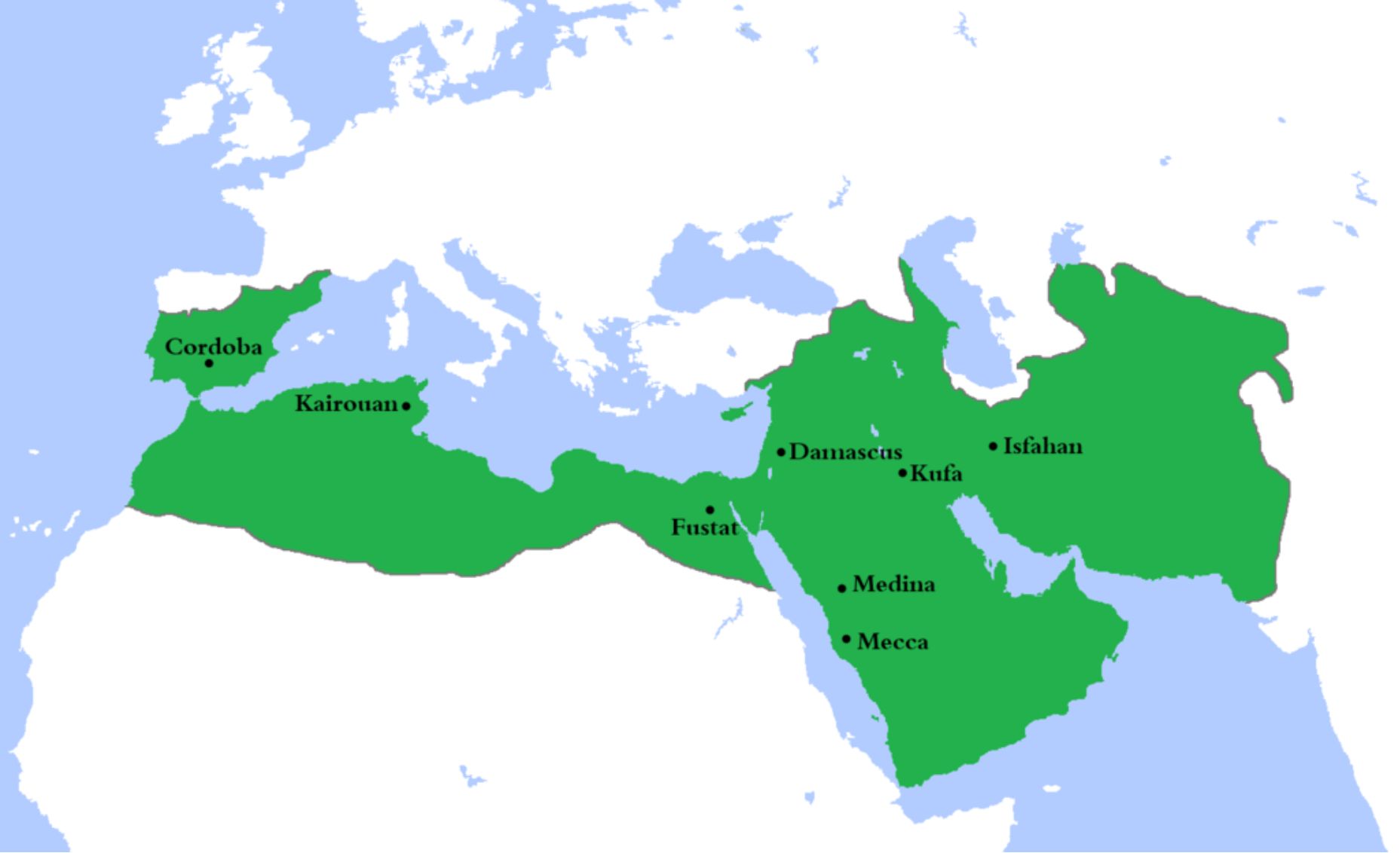
A map of the Umayyad caliphate at its peak

Charles River Editors is a boutique digital publishing company, specializing in bringing history back to life with educational and engaging books on a wide range of topics. Keep up to date with our new and free offerings with this 5 second sign up on our weekly mailing list , and visit Our Kindle Author Page to see other recently published Kindle titles.
We make these books for you and always want to know our readers opinions, so we encourage you to leave reviews and look forward to publishing new and exciting titles each week.
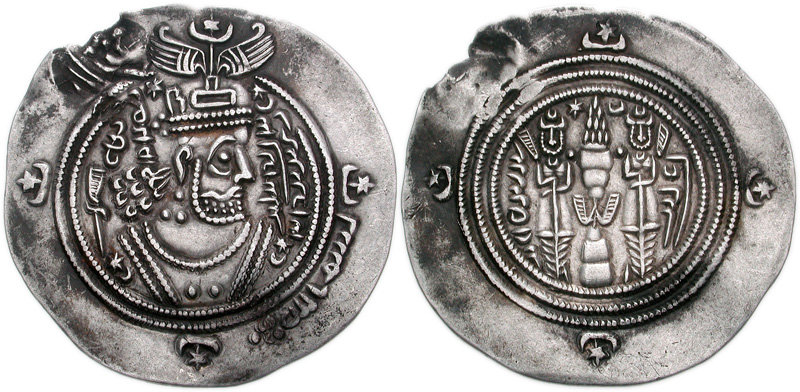
Classical Numismatic Group, Inc.s picture of an Umayyad coin
The split between the two forms of Islam was already in the process of forming upon the death of the Prophet Muhammad. Muhammad had constructed around himself not only a potent new religious movement but also a powerful young state called the Ummah (the "Community" for lack of a better translation). Belonging to the Islamic faith also meant belonging to the Ummah, which was governed by its own laws and had many of its own institutions. In his own lifetime, Muhammad had ruled the Ummah through what sociologists call "charismatic authority," a term coined by Max Weber that is defined as "resting on devotion to the exceptional sanctity, heroism or exemplary character of an individual person, and of the normative patterns or order revealed or ordained by him." Hence, Muslims believe Muhammad ruled because he was uniquely chosen and endowed by God as the exemplar of all humanity, giving him a unique (though not perfect or infallible) ability to govern humanity. This was a holistic form of governance because the Prophet did not simply deliver God's words (what became the Holy Qur'an), nor did he simply pronounce upon court cases and create laws. He did all those things, but he also presented in his own person the embodiment of the best that humanity could aspire to. He was fully human, but the finest, most pious example that humans would ever produce .
One of the problems with charismatic authority, as Max Weber recognized and pointed out, is that charismatic authority is fragile because it cannot last beyond the lifespan of the charismatic individual without major changes. As a result, it is often difficult to create continuity after the death of a charismatic leader. Plenty of societies or movements have experienced collapse or massive upheaval after the death of a charismatic leader, such as France after Napoleon and the ancient world after Alexander the Great.
The process of converting a charismatic authority into a more stable, long-term form of government is called "routinizing charisma." In this process, the society attempts to keep some of the legitimizing elements of the deceased leader in place while also creating ways to choose new leaders. This can be agonizing, especially since new leaders rarely live up to or replace the one who has come before. That said, history has provided several successful examples, such as the Roman Empire after Julius Caesar, the Christian Church after Jesus, and the Islamic Republic of Iran after Ayatollah Khomeini.
Amid the upheaval in the Islamic world following Muhammads death, the Umayyad Caliphate lasted for less than a century, but in that time it managed to become one of the most influential of the major caliphates established following him. Its official existence was from 661-750, and the rulers were the male members of the Umayyad dynasty, roughly translated from Arabic as the Sons of Umayyah. Its primary base of power was in Syria following the creation of a dynastic, hereditary rule headed by one of Syrias long-lasting governors, Muawiya ibn Abi Sufyan.
Like the other caliphates around that time, the Umayyads existed in a constant state of internal struggle and external conflict. Battles over succession, especially over which lineages possessed the more legitimate claim to power, plagued the early years of the caliphate in Syria. The most significant were the First Muslim Civil War in 661 and the Second Civil War in 680. The official right to become caliph passed between branches of the Umayyad clan, but Syria and Damascus continued to be the main seats of power even as the kingdom expanded to include the Iberian Peninsula, the Transoxiana, the Maghreb, and Sindh.
The Umayyad Caliphate became renowned for being a center of authoritarian power, education, and cultural development. The population was multiethnic and consisted of local peoples conquered throughout Africa, Europe, and Asia, including regional Christians and Jews. At its greatest extent, the empire extended over an area of 4,300,000 sq. miles, with over 33,000,000 residents. It was one of the largest known empires in history, even considering modern developments, and a precursor to the Golden Age of Islam.
Scholars throughout history have remained divided on the best way to interpret the legacy left by the Umayyads. On the one hand, they were able to unite a massive array of people and exert control over millions of square miles. On the other hand, they became infamous for their treatment of religious and ethnic minorities, were seen as turning away from God in favor of material excess, and managed to be overthrown by the millions they isolated through their policies. Through it all, they offered lessons for future Muslim kingdoms about the dangers of trying to combine religious beliefs with secular administration in a diverse world, and ultimately, the Umayyads would be replaced by the far more intelligent and crafty Abbasids, who managed to wield powerful tools like propaganda to undermine their opponents.
It remains a subject of modern debate how to best understand the Umayyads, but there is no doubt they were one of the most influential of the early medieval empires and paved the way for future Islamic caliphates to wield impressive amounts of influence throughout the Middle East. The Umayyad Caliphate: The History and Legacy of the Second Islamic Kingdom Established After the Prophets Death chronicles the caliphates life and accomplishments, and the massive impact it left on the world. Along with pictures of important people, places, and events, you will learn about the Umayyad Caliphate like never before.
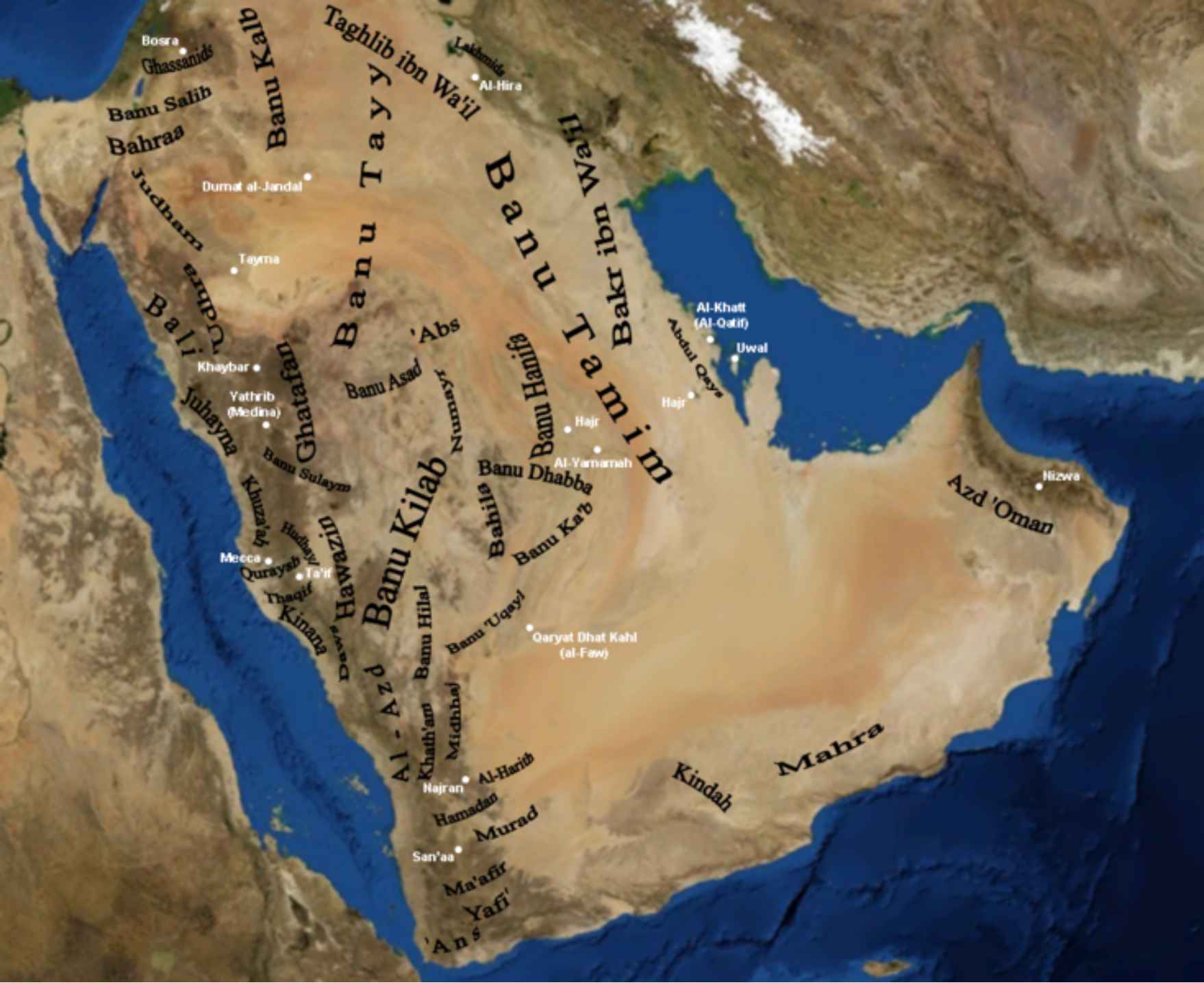
The Arabian Peninsula and the names of various tribes during Muhammads life
When Muhammad died, the Ummah realized he could not be truly replaced and that there would never again be a man like him. That said, the Ummah hoped to find a leader that was still significantly superior to the ordinary man, and the most obvious candidates for superior people were the Prophet's family. Was there some way that the special qualities of Muhammad could be found amongst the members of his close family? Was there some special teaching or insight that Muhammad passed on to his family? Were Muhammad's teachings and the blessings of God only to be found within the Qur'an and the emulation of the life of the Prophet and therefore available equally to all Muslims? If there was something special about Muhammad, then special consideration should be given to the Prophet's family in the political life of the new Islamic state. However, if the leaders of the Ummah should be chosen based on their knowledge of the Qur'an, their piety, and their ability to administer and defend the community, then there was no need to turn just to Muhammads family for leadership.
Font size:
Interval:
Bookmark:
Similar books «The Umayyad Caliphate: The History and Legacy of the Second Islamic Kingdom Established After Muhammad’s Death»
Look at similar books to The Umayyad Caliphate: The History and Legacy of the Second Islamic Kingdom Established After Muhammad’s Death. We have selected literature similar in name and meaning in the hope of providing readers with more options to find new, interesting, not yet read works.
Discussion, reviews of the book The Umayyad Caliphate: The History and Legacy of the Second Islamic Kingdom Established After Muhammad’s Death and just readers' own opinions. Leave your comments, write what you think about the work, its meaning or the main characters. Specify what exactly you liked and what you didn't like, and why you think so.

